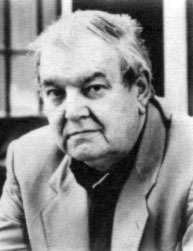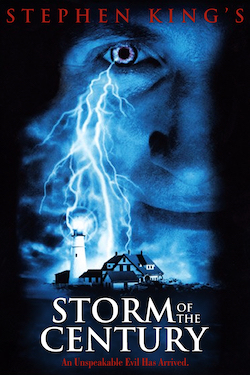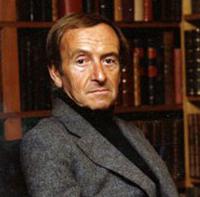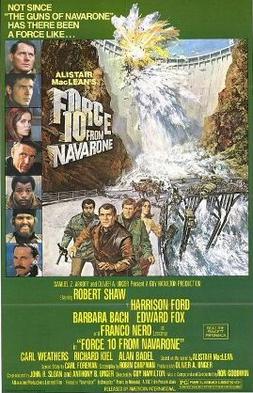This article needs additional citations for verification .(February 2017) |
UNACO, the United Nations Anti-Crime Organization, is a fictional agency within the United Nations created by author Alistair MacLean.
This article needs additional citations for verification .(February 2017) |
UNACO, the United Nations Anti-Crime Organization, is a fictional agency within the United Nations created by author Alistair MacLean.
In 1980, MacLean was commissioned by an American movie production company to write a series of story outlines to be subsequently produced as movies. He invented UNACO as the device for the stories, writing notes and outlines for a number of adventures. MacLean himself did not expand the finished product, leaving that to other writers.
While some of the outlines were completed as screenplays, a greater number were expanded into novels. In 1980 and 1981, John Edwards (former editor of the BBC's That's Life programme) and Denis Frost worked together under the pen name "John Denis" on the first two novels/screenplays. A few years later, (1989–93) Alastair MacNeill wrote some screenplays and a number of novels from the source outlines. In the later 1990s, author Hugh Miller completed the last two UNACO novels, still working from MacLean's original notes and outlines.
Some of the works bear little resemblance to MacLean's style, especially in their use of gratuitous sex and violence.
The prologue of each novel repeats the formation story for UNACO. The concept is that, "in September 1979, the Secretary-General of the United Nations chaired a meeting attended by 46 envoys representing virtually every country in the world...", creating UNACO to "...avert, neutralize, and/or apprehend individuals or groups engaged in international criminal activities. ...UNACO's clandestine existence began on March 1, 1980". [1]
UNACO uses groups of people to form "strike forces". Each strike force has a leader who communicates with UNACO's top commanders. UNACO also works with other agencies around the world.
Although the character names remain the same, their backgrounds are changed from the John Denis books (detailed above) to the Alastair MacNeill books. Philpott is changed to Scottish and is the former head of Scotland Yard before forming UNACO. Graham comes straight to UNACO from Delta Force after his wife and 5 year old son are kidnapped by terrorists and never found, Carver is changed to a languages graduate who studied at the Sorbonne and joined the FBI before leaving for UNACO and Whitlock is a 44 year old Kenyan who was educated in Britain and then returned home to Army Intelligence before being recruited by UNACO. Sergei Kolchinsky, a former KGB agent, is heavily featured as Philpott's deputy in the Alastair MacNeill books (in the John Denis books Philpott's deputy is Sonia Kolchinsky and the two are romantically involved). Jacques Rust, based in Zurich, is also a recurring character in the Alastair MacNeill books. He was formerly part of Strike Force 3 with Whitlock and Carver before being paralysed by a bullet to the spine and replaced by Graham. Rust now heads up European operations.
| Year | Title | Author, using MacLean's notes | Films |
|---|---|---|---|
| 1980 | Hostage Tower | John Denis | Hostage Tower (1980) |
| 1981 | Air Force One is Down | John Denis | |
| 1989 | Death Train | Alastair MacNeill | Death Train (1993) |
| 1989 | Night Watch | Alastair MacNeill | Night Watch (1995) |
| 1990 | Red Alert | Alastair MacNeill | |
| 1991 | Time of the Assassins | Alastair MacNeill | |
| 1992 | Dead Halt | Alastair MacNeill | |
| 1993 | Code Breaker | Alastair MacNeill | |
| 1997 | Prime Target | Hugh Miller | |
| 1998 | Borrowed Time | Hugh Miller |
Alistair Stuart MacLean was a 20th-century Scottish novelist who wrote popular thrillers and adventure stories. Many of his novels have been adapted to film, most notably The Guns of Navarone (1957) and Ice Station Zebra (1963). In the late 1960s, encouraged by film producer Elliott Kastner, MacLean began to write original screenplays, concurrently with an accompanying novel. The most successful was the first of these, the 1968 film Where Eagles Dare, which was also a bestselling novel. MacLean also published two novels under the pseudonym Ian Stuart. His books are estimated to have sold over 150 million copies, making him one of the best-selling fiction authors of all time.
Night Watch or Nightwatch may refer to:

Clive Eric Cussler was an American adventure novelist and underwater explorer. His thriller novels, many featuring the character Dirk Pitt, have reached The New York Times fiction best-seller list more than 20 times. Cussler was the founder and chairman of the National Underwater and Marine Agency (NUMA), which has discovered more than 60 shipwreck sites and numerous other notable underwater wrecks. He was the sole author or lead author of more than 80 books.

George MacDonald Fraser was a British author and screenwriter. He is best known for a series of works that featured the character Flashman.

The Regulators is a novel by American author Stephen King, writing under the pseudonym Richard Bachman. It was published in 1996 at the same time as its "mirror" novel, Desperation. The two novels represent parallel universes relative to one another, and most of the characters present in one novel's world also exist in the other novel's reality, albeit in different circumstances. Additionally, the hardcover first editions of each novel, if set side by side, make a complete painting, and on the back of each cover is also a peek at the opposite's cover.
Alistair is a masculine given name. It is an Anglicised form of the Scottish Gaelic Alasdair. The latter is most likely a Scottish Gaelic variant of the Norman French Alexandre or Latin Alexander, which was incorporated into English in the same form as Alexander. The deepest etymology is the Greek Ἀλέξανδρος (man-repeller): ἀλέξω (repel) + ἀνήρ (man), "the one who repels men", a warrior name. Another, not nearly so common, Anglicization of Alasdair is Allaster.

Storm of the Century, alternatively known as Stephen King's Storm of the Century, is a 1999 American horror television miniseries written by Stephen King and directed by Craig R. Baxley. Unlike many other television adaptations of King's work, Storm of the Century was not based on a novel but was an original screenplay written by the author and directly produced for television. King described the screenplay as a "novel for television." The screenplay was published as a mass-market book in February 1999 prior to the TV broadcast of the mini-series.

In Dubious Battle is a novel by John Steinbeck, written in 1936. The central figure of the story is an activist attempting to organize abused laborers in order to gain fair wages and working conditions.

Brian Moore, was a novelist and screenwriter from Northern Ireland, who emigrated to Canada and later lived in the United States. He was acclaimed for the descriptions in his novels of life in Northern Ireland during and after the Second World War, in particular his explorations of the inter-communal divisions of The Troubles, and has been described as "one of the few genuine masters of the contemporary novel". He was awarded the James Tait Black Memorial Prize in 1975 and the inaugural Sunday Express Book of the Year award in 1987, and he was shortlisted for the Booker Prize three times. Moore also wrote screenplays and several of his books were made into films.
Dramatic structure is the structure of a dramatic work such as a book, play, or film. There are different kinds of dramatic structures worldwide which have been hypothesized by critics, writers and scholars alike over time. This article covers the range of dramatic structures from around the world. How the acts are structured, what the center of the story is supposed to be about widely varies by region and time period.

Force 10 from Navarone is a 1978 war film loosely based on Alistair MacLean's 1968 novel of the same name. It is a sequel to the 1961 film The Guns of Navarone. The parts of Mallory and Miller are played by Robert Shaw, and Edward Fox, succeeding in the roles originally portrayed by Gregory Peck and David Niven. It was directed by Guy Hamilton and also stars Harrison Ford, Carl Weathers, Barbara Bach, Franco Nero, and Richard Kiel.

Mao II, published in 1991, is Don DeLillo's tenth novel. The book tells the story of a novelist, struggling to finish a novel, who travels to Lebanon to assist a writer being held hostage. The title is derived from a series of Andy Warhol silkscreen prints depicting Mao Zedong. DeLillo dedicated the book to his friend Gordon Lish. Major themes of the book include crowds and the effects of political terrorism. Mao II received positive reviews from critics and won the PEN/Faulkner Award in 1992.
"Past Prologue" is the third episode of the American science fiction television series Star Trek: Deep Space Nine, broadcast during the first season. It originally aired in broadcast syndication beginning on January 11, 1993. The episode was written by Katharyn Powers, with additional elements added by executive producer Michael Piller and co-producer Peter Allan Fields. It was directed by Winrich Kolbe.
Philip MacDonald was a British-born writer of fiction and screenplays, best known for thrillers.

Death Train is a 1993 American made-for-television action-thriller disaster film featuring Pierce Brosnan, Patrick Stewart, Christopher Lee, Ted Levine, and Alexandra Paul. The script was based on an Alastair MacNeill novel of the same name, which in turn was based on an Alistair MacLean screenplay.

Night Watch is a 1995 American television spy film directed by David Jackson starring Pierce Brosnan and Alexandra Paul. The film, also known as Alistair MacLean's Nightwatch, was shot in Hong Kong. The film aired on the USA Network. It is a sequel to Death Train.
The Razzie Award for Worst Screenplay is an award presented at the annual Golden Raspberry Awards for the worst film screenplay of the past year. The following is a list of nominees and recipients of that award, including each screenplay's author(s).

The Hostage Tower is a 1980 American spy and thriller television film starring Peter Fonda and Douglas Fairbanks Jr., and directed by Claudio Guzmán, well known for his work in sitcoms. It is based on a story by Alistair MacLean. A book based on MacLean's story by John Denis was the first in the series of UNACO books.
Death train may refer to:

Let the People Sing is a 1942 British comedy film directed by John Baxter, and starring Alastair Sim, Fred Emney and Edward Rigby. The film's sets were designed by R. Holmes Paul. It was made at Elstree Studios.